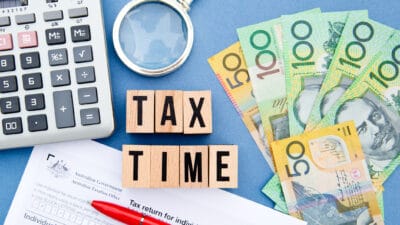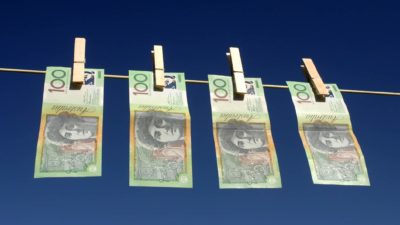We'd all like some extra passive income. But in my experience, there are a few misconceptions out there as to how passive income is treated by our tax system.
Getting the hang of how a second source of income can help or hurt your tax situation is vital to successfully build out an income side hustle. After all, it's not really worth it if your new second income stream results in the Australian Taxation Office (ATO) knocking on your door.
So the golden rule when it comes to tax and passive income is that the ATO treats most sources of income as, well, income. Have a podcasting side hustle? That's income. Do Amazon dropshipping? That's also income. As is any rent you might get from leasing out a house, apartment or garage.
Passive income is income
Even the dividends from ASX shares, our favourite source of passive income here at The Motley Fool, are classed as ordinary income by the ATO. That means these income streams are simply added to the income from your primary source of income when it's time to do your taxes.
Keep in mind though, one of the reasons why ASX dividends are such a great second income are the franking credits that these often come attached with. Franking credits are essentially a receipt of the corporate tax that these dividends have already been subjected to. As such, we can generally use these franking credits as a tax deduction on other income sources.
Another thing to remember when it comes to investing in shares is that you can often claim a tax discount on shares that you sell at a profit. Share sales usually fall under the jurisdiction of capital gains tax. But for most investors, if you hold the shares for longer than a year, you get a 50% discount on the tax you are obliged to pay. Another perk of using ASX shares as a source of passive income.
Many side hustles or sources of second income have other tax perks that you can use to your advantage too. Some are specific. Take the famous (or perhaps infamous) ability of property investors to negatively gear losses incurred during the investing process.
Additionally, any expenses you incur during the course of producing passive income are usually tax deductible as well.
Foolish takeaway
Receiving passive income has tax implications, just as receiving income from our day jobs does too. All of this information is general in nature. So it's highly advisable to consult with a licensed tax professional before you start declaring passive income to the ATO. Or claiming tax deductions.
Passive income is a wonderful thing. But don't let it be the reason you get an unwanted call from the ATO.








